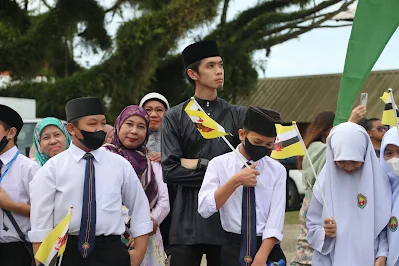These factors have led experts to question whether Brunei might face challenges in maintaining its development momentum.
Decrease in Trade
The declining trade figures are likely to negatively impact Brunei's economy.
As a small country with a narrow export base, Brunei heavily relies on trade to generate revenue.
This trade decline could lead to reduced government revenue, potentially affecting the government's ability to provide essential services.
Additionally, it could result in job losses within the export-oriented sectors of the economy.
Decline in Foreign Investment
Brunei has also witnessed a decline in foreign investment in recent years.
In 2022, the country saw foreign investments totaling B$403 million exiting the country, which represents a significant capital outflow not being offset by replacements.
The dwindling foreign investment is a major concern for Brunei. Foreign investment plays a pivotal role in the country's economic development by fostering job creation, boosting economic growth, and attracting new technologies.
This decline suggests waning investor confidence in the Bruneian economy.
Shrinking Development Budget
The development budget of Brunei has also undergone contraction in recent years.
This substantial reduction in government spending on development projects raises alarms.
The diminishing development budget poses challenges for Brunei's future.
Development projects are pivotal in fostering the country's economic growth. They contribute to infrastructure development, job creation, and the attraction of new businesses.
The shrinking budget could impede Brunei's ability to achieve its economic goals.
Maintaining Development Momentum
The economic trends do not paint a positive picture. The Bruneian government must take proactive measures to address investor concerns and stimulate economic growth.
Successful implementation of such measures can help secure Brunei's prosperity in the future.
Conclusion
In conclusion, the economic situation in Brunei raises concerns.
The country faces a decline in trade, reduced foreign investment, and a shrinking development budget.
To safeguard its future, the Bruneian government must take measures to tackle these issues and stimulate economic growth. With effective actions, Brunei can ensure its continued prosperity in the times ahead. (MHO/08/23)
Disclaimer:
The views and opinions expressed in this article, "Brunei's Economy: Cause for Concern," are solely those of the author and do not necessarily reflect the official stance of any organisation, institution, or government body. The information in this article is based on publicly available sources as of the time it was published. While every effort has been made to ensure accuracy, the author does not make any representations or warranties regarding the completeness, accuracy, reliability, or suitability of the information.
This article is intended for informational and educational purposes only and should not be construed as professional financial or economic advice. Readers are advised to consult with qualified professionals and experts before making any financial or economic decisions. The author disclaims any liability for any actions taken or not taken based on the information provided in this article.
Readers are encouraged to independently verify any information presented in this article and to consider various perspectives before forming their own opinions. The author and the publisher are not responsible for any errors or omissions, or for any actions taken based on the information presented in this article.




.jpeg)




















